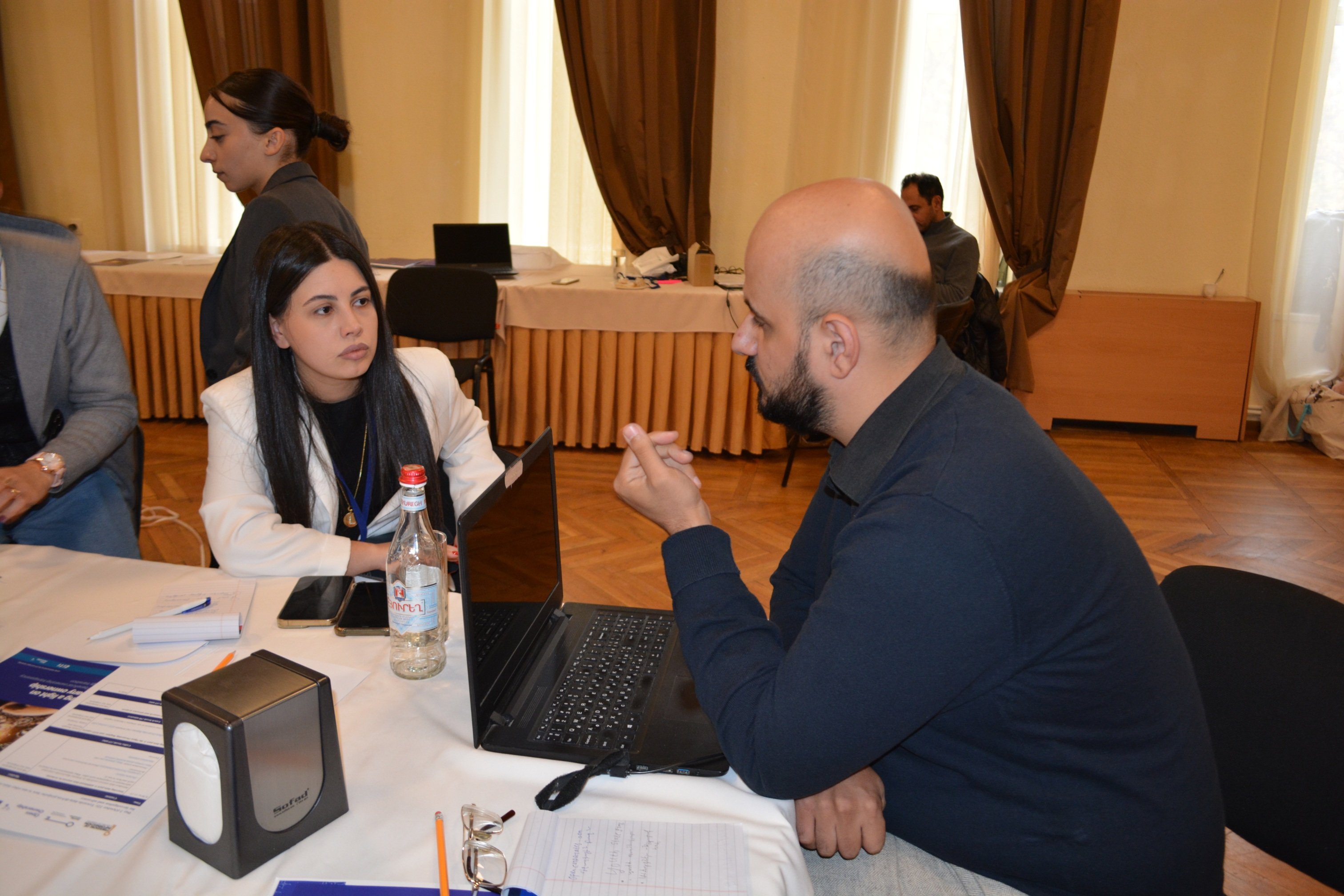Who benefits? How company ownership data is used to detect and prevent corruption
Increasing beneficial ownership data use in addressing corruption
Based on the case studies in this report, five actions have been identified to increase the significant potential for using beneficial ownership data to address corruption.
1. Build registers that meet user needs
- Governments should consult on specific reforms with potential data users, including other government agencies, businesses, civil society and the public.
- Governments should implement existing commitments and produce actionable data.[3]
- Multilaterals and standard-setting bodies should raise minimum standards and support governments to implement them.
- Governments should ensure sufficient data is publicly accessible to all potential data users without undue restrictions, in a format that enables data use and conforms with privacy legislation.

Journalists in Armenia are acquiring skills, tools, and methodologies to analyse and use beneficial ownership disclosures
2. Raise awareness and capacity for data use
- Governments and civil society should raise public awareness of the potential for beneficial ownership data use and strengthen the capacity of financial investigative units, law enforcement, businesses, civil society and journalists to use data, including in combination with other datasets.
3. Invest in innovation
- Donors, governments and businesses should support innovations in beneficial ownership data use to facilitate its integration with other data sets and make it easier to use in examining corruption cases.
4. Embed the use of data into existing and new processes
- Businesses should embed the use of beneficial ownership data from central registers into existing due diligence and risk-management processes through robust policies for vetting and taking decisions on business partners.
- Governments should build transparency into existing and new policy areas and government systems. There is a strong case, for example, for adopting beneficial ownership transparency into policies for the transition to renewable energy; in climate financing; in the wind down of fossil fuels; and the governance of critical minerals.[4]
5. Build sustainability into reforms
- Donors should provide seed funding for register development and for research into beneficial ownership transparency.
- Governments should capitalise on digital systems and structured data to reduce operational costs. They should implement registers with funding models that do not curtail data use.
- International organisations should ensure that technical support includes the transfer of knowledge to local actors.
Next page: Using beneficial ownership data to reduce corruption